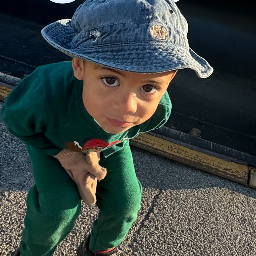How to Babysit a Preteen (Important Tips You Should Know)


Written & Illustrated by
Matthew James Taylor
Kidsit Founder, General Manager

Medically Reviewed by
Gina Maria Jansheski, MD, FAAP
Board-Certified Pediatrician, Medical Reviewer
Key Takeaways
- Preteens (ages ~11–12) are developing independence, identity, and more emotional sensitivity - this requires a babysitter who balances being supportive with being an authority.
- Build rapport by asking about school, interests, and preferences, and allow more freedom (with parental approval) while still enforcing house rules.
- Plan age-appropriate outings and activities outside the house - preteens can handle more autonomy but still need engagement.
- Clearly state and consistently enforce discipline and boundaries to maintain respect, avoid manipulation, and support parent expectations.
- Use positive reinforcement (rewards, praise) more than punishment; kids this age respond well to fairness, recognition, and having input.
- Be prepared for emotional shifts, risk-taking, and occasional tests of authority. Keep emergency info handy.
Babysitting a preteen (AKA tween) can be a fun and rewarding experience. However, this age group comes with its own challenges as well.
How do you babysit a preteen? Preteens are more mature and independent than other kids that you might babysit. Finding an appropriate balance between being a friend and an authority figure is one of the most important parts of babysitting kids in this age group. Preteens need some freedom, but also clear boundaries set for them.
Kidsit babysitting statistics
60.23% of babysitters are happy to babysit tweens (9 - 12 years).
(Babysitting statistics calculated weekly from our live member data — Updated 31 Jan 2026)
In this article, I'll explain how to get to know the preteen that you're babysitting and to look after them effectively. By the end, you should know how to develop a healthy relationship with preteens that you've been asked to babysit.
Babysitting a Preteen
Preteens (sometimes also called tweens) are kids just on the edge of adolescence—usually age 11 or 12. There are some key differences between babysitting preteens and younger children that you should keep in mind.
Most kids in this age group have not yet completed most of the changes related to puberty—but it definitely has begun. Their thinking patterns are changing, and they are developing a sense of their identity. The hormonal changes are affecting the way they look at themselves and others (source).
This is a time when children begin to care more about how they fit into the world and become more sensitive to their emotions and those of the people around them (source). Most notably, preteens may feel self-conscious about needing a babysitter—among other things, and also have a strong desire to fit in.
As kids approach the teen years, they are often starting to feel more grown up with their own sense of autonomy, and they want to be treated with respect. They frequently develop a bit of an attitude towards authority, complete with eye-rolling, talking back, and lots of complaining, which can make for some babysitting challenges (source).
It can be a difficult balance to find and maintain since preteens aren't like younger kids, but they aren't yet as responsible and mature as teenagers either. So it takes sensitivity and a little planning to relate to and engage them in a way that is age-appropriate without compromising your babysitting authority.
Here are some things you can do to build rapport with a preteen in your care and make for a more enjoyable time for everybody involved.
Interested in learning how kids develop as they grow? Check out my article Babysitting & Child Psychology (Physical, Cognitive & Social Growth)
Find the Right Balance Between Being a Friend and an Authority
One of the keys to successfully babysitting a preteen is to strike an equilibrium between being their friend and an authority figure.
If you're a teen babysitter, it's probably easy for you to relate to a preteen. You might like a lot of the same movies, technology, music, and fashion. And you can play games and activities with them to pass the time.
However, it still also needs to be clear that you're the one in charge while their parents are away. You can't allow a preteen to boss you around or try to get their way just because you're only a couple of years older.
It's all about presenting yourself as a friendly caregiver. You can talk to them about things they are interested in and do activities that you both enjoy together. But if there is any disagreement, you are the babysitter, and your word needs to be final.
Stick to any house rules that their parents set. Parents set those clear guidelines for a reason. At the end of the day, it's the parents that are paying you for your time, and they have given the responsibility of caring for their kid to you. So it's important that you're on the same page. If you have to choose between siding with the parents or the preteen that you're babysitting, always go with the parents.
Preteens can have fun with you while also maintaining a healthy level of respect. And that respect can sometimes take a little work to earn.
Get to Know Preteens Better
With infants and toddlers, it's harder to know exactly what their likes and dislikes are. They might not even be sure themselves yet!
But preteens have a fully developed personality with a clear idea of what they enjoy and what they don't. Each preteen is a budding adult with their own unique needs and wants.
Some preteens might be more shy and reserved. Others might be more outgoing and active. The personality of the preteen that you're babysitting will largely indicate the types of hobbies and activities that they enjoy.
The first few times that you babysit a preteen, I would recommend making an extra effort to really get to know them. Try to engage them in conversation. Ask about school first (that’s usually safe ground because they are fairly used to people they don’t know asking about that part of their life), and then if you sense they are starting to feel comfortable with the conversation, you can ask some questions about what sorts of things they enjoy and don't enjoy.
It can also help to ask parents a bit about what kinds of interests their preteen has before you babysit them for the first time.
Get Preteens Out of the House
Since preteens are more autonomous, you can take them on outings and do more activities with them compared to when you're babysitting younger kids.
Unlike toddlers, they won't need you to constantly hold their hand. Supervising can look a little different at this age, and it is more laid back. You are with them, but you don’t have to be so vigilant and can take your eyes off of them for short periods of time.
If the weather is nice, there are lots of outdoor activities that you can do with a preteen that you're babysitting, especially if they're more inclined to enjoy outdoor or sports activities.
You can take them to the local swimming pool during open swim hours. (Just make sure that a lifeguard is on duty!) You can go for a bike ride or a walk. Or you can play sports together, like soccer or baseball.
For more introverted preteens, you can still get them out of the house. Take them to see the newest museum exhibit in your city. Go see an age-appropriate movie together at the cinema. Or hit the arcade and play some video games together. Just remember, any activities you do with them outside the home must be cleared first with parents.
See if there are any activities like learning to cook that the preteen you're babysitting might be interested in. Most preteens also enjoy playing board games with their babysitter.
Some screen time is okay as long as parents approve. Just try not to make it the majority of the time that you spend babysitting them. Parents are likely expecting you to do more than just watch television or play video games while they're gone.
Bored and not sure what to do? Get some inspiration from my article Fun things to do when Babysitting (207 Kids’ Games, Activities, & Entertainment Ideas).
Allow Preteens to Have More Freedom
You can let preteens that you're babysitting have a bit more independence than younger kids.
It's okay to let them play in their bedroom unsupervised and only check on them periodically as opposed to younger kids who need more constant supervision.
You still want to ensure that preteens in your care are safe. And they still need help to manage their time. However, as kids start to get older, you can let them have a bit more independence.
Like most kids, preteens like to have some choice instead of being forced into doing one thing (especially if it’s what their younger sibling is doing). So it can help to present them with a bunch of different age-appropriate activities and let them pick the one that appeals to them the most.
You can offer them crafts similar to what you'd do with younger kids. Just try to swap out things like finger paints or crayons for more mature activities like drawing with oil pastels, and let them know it.
Some preteens need space more than anything else. After all, they're well on their way to becoming teenagers. As a babysitter, while it's your responsibility to stick with the rules and boundaries that parents require, you don't want to act like an overbearing dictator and make your preteen feel stifled. Learning to be independent and autonomous is an important part of growing up. So don't take that away from them completely.
Just focus on keeping them safe. Some preteens may need more supervision, while others can manage on their own. Your job is to know what kind of preteen you're looking after and act accordingly. That will determine if you're providing more direct guidance, or you just need to be there more as a support system in case anything goes wrong.
Motivate Them with Experiences
Kids of all ages have something they really enjoy or a special activity they wish they could do nonstop, and preteens are no exception.
You can use this to your advantage to reward preteens that you're babysitting for good behavior or to help build a stronger connection with them.
If you're struggling to get a preteen to finish their homework or complete chores like folding their laundry, you can try to bribe them with the promise of a reward.
Even the most stubborn kid will usually give in at the promise of going for a walk to the local ice cream shop, or getting to order pizza and watch a movie once all of their chores are done. It can be a lot more effective as a form of positive reinforcement, rather than punishing or taking something away (although you may have to do that sometimes, too).
Many parents will have a rule that kids need to finish their homework before having any screen time. Very often, their digital entertainment is limited per the AAP guidelines (source), and they might only be allowed an hour or so to play video games or be on their phones after dinner, schoolwork, or chores are done. They may or may not be allowed to go on an outing or watch a movie on a school night.
Just be sure to ask parents what they usually do to reward their tween’s good behavior. Ask about screen time limits and supervision. For older kids, parents may assume they can look out for themselves and sometimes forget to tell you what they are allowed to do, or not.
Make sure when you reward kids that the experience is age-appropriate, that it falls within the parents’ rules, and that the kid knows and can expect it if they do what they are supposed to do. Follow through, and gain their trust.
On the flip side, you will have to withhold the experience if they do not do their part. This can be difficult, but if you give in, you risk losing your authority—and their respect. (The parents will probably hear about it from them, and they won’t like it either.)
Don’t Try to Be Cool
Tweens are a tough bunch. They are working on developing a separate identity from parents and their expectations. Developmentally, this is normal, but it presents a whole new set of challenges. They are trying to find out who they want to be. Many will reject authority figures outright—just because—and they’ll often put up a fight when required to do something they don’t want to do. Babysitters can really struggle with this at times, and they use different approaches to gain favor with the preteen.
One of the biggest mistakes you can make is to try and get kids to like you by acting cool. Don’t ever think that you will be cool enough for them, or that it would even benefit you if you could. Although the preteen might not like it at times, you need to behave in a way that is appropriate for your age and circumstances. You are the person the parents hired to supervise their kid—not to act like their kid!
Set the Discipline Standards
The preteens you're babysitting are already more than familiar with the rules of their household and the consequences of breaking them. However, in the beginning, they'll likely try to push you to see how much leniency you're willing to give them.
From the very first time you babysit, be clear that the same rules apply as when their parents are home. And let them know that you're willing to enforce the same consequences the parents do for breaking those rules. For preteens, an effective consequence for breaking rules may be losing privileges—such as having their phone taken away for a certain amount of time.
Avoid the urge to give more leeway and bend the rules when a preteen starts to plead with you. Extending bedtime by an extra 15 minutes can quickly turn into an extra hour or more if you aren't careful, and they’ll expect you to do it every time.
You should also be prepared for the preteen you're babysitting to lie to you (source). They're old enough and smart enough to be masters of deception by this age. Some preteens will even try to convince you of obvious lies, like that they're allowed to eat ice cream for dinner. If they can get away with it once, to them, it is worth it. So always check things out with their parents.
They might get a sense of which rules are unclear or that you didn't discuss with their parents. For example, they could try to persuade you that they're allowed to walk to their friend's house down the street and play unsupervised. Something like this, leaving the house alone, should not be decided upon by the babysitter. If you and the parents have not discussed something that seems extra or uncertain, it's important to call them yourself and get their permission before you allow it.
Keep Things Positive
As the old saying goes, you catch more flies with honey than vinegar.
Kids of all ages tend to respond much better to a positive tone than a negative one. If there's something that you want the preteen you're babysitting to do, try to ask nicely and stay positive. And always focus on enforcing the behavior or actions that you do want. As opposed to complaining or yelling at them about the things you don't want or think they're doing wrong.
If you're able to stay calm and positive, it's more likely that the preteen you're babysitting will remain that way as well.
When your preteen shows a good behavior that you want to encourage, be sure to praise them for it. Try to find at least one thing every couple of hours that you can praise the preteen that you're babysitting.
Older kids like to be treated with respect. So talk to them the same way that you'd talk to your peers or an adult unless they do something to give you a reason to revoke that privilege. Don't talk down to them, and don't interrupt them when they're speaking with you.
Prepare for Emergencies
Preteens are less likely to suffer from the frequent bumps and bruises that you may have to watch out for if you're babysitting a toddler. If a preteen does have a minor scrape, they're most likely able to clean it and apply a bandaid themselves. But it’s a good idea to offer to help and let them know you care and are there to help.
However, preteens can be at risk for more serious injuries because they are more likely to engage in risky behavior. They might fall off their bike at high speeds, or fail to complete a backflip on the trampoline.
Ideally, you want to talk preteens out of engaging in any risky behavior while you're watching them—and many times parents don’t want them to either (like the trampoline), so make sure to ask. But keep a watchful eye, because they might try a crazy stunt in the few moments that you're looking away.
Be sure that you have a list of emergency numbers provided by their parents, and know where the family's first aid kit is located. Ideally, you should have CPR and First Aid training to deal with any serious injuries that a preteen might sustain.
See my article, Babysitting Emergency Numbers (Plus Printable Contact Sheets), for help preparing everything that you'll need.
What Age Is The Easiest To Babysit?
We polled our babysitters to find out:

Conclusion
In some ways, babysitting a preteen is easier than supervising younger children. They can clearly communicate exactly what they want. Since they're closer to your own age, they're easier to relate to, and you may share many of the same interests.
However, watching preteens isn't without its own unique challenges. Kids in this age group want more independence and autonomy. So you'll need to find the right balance between giving them their own space and options, while also enforcing any rules or boundaries that parents expect.
With a bit of up-front work with them in the beginning to build a relationship, babysitting preteens can be an enjoyable job that lets you have fun and make a friend while getting paid at the same time.





























